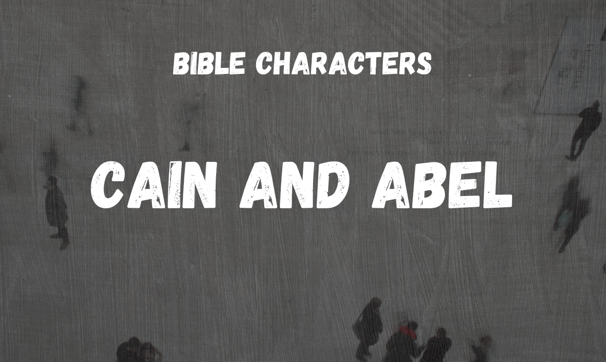Cain e Abel
BIBLE CHARACTERS


Discover the story of Cain and Abel! Cain, the first born son of humanity and Abel, the righteous blood spilled.
“And Adam knew Eve his wife; and she conceived, and bare Cain, and said, I have gotten a man from the Lord. And she again bare his brother Abel. And Abel was a keeper of sheep, but Cain was a tiller of the ground.”
Genesis 4:1-2
Cain and Abel are the first two sons of Adam and Eve mentioned in the Bible. Their story is narrated in Genesis 4. Cain was the firstborn of Adam and Eve, followed by his younger brother, Abel. Upon Cain's birth, Eve declared, "I have gotten a man from the Lord." (Genesis 4:1).
Although little is known about their childhood, both grew up in a world outside of Eden, where labor and toil had already become part of human life. Cain became a farmer, cultivating the land to produce food, while Abel became a shepherd, tending to flocks.
These occupations reflect the diversity of human activities from the beginning of time, but they also set the stage for the conflict between the brothers. In the course of time, both presented offerings to God—Abel offered the firstborn of his flock and their fat portions, while Cain offered fruits of the land. God accepted Abel's offering but rejected Cain's. Although the reason is not explicitly stated, the text suggests that the attitude of the heart was crucial. Abel offered with faith and sincerity, while Cain may have acted with indifference or pride (Genesis 4:3-7).
“By faith Abel offered unto God a more excellent sacrifice than Cain, by which he obtained witness that he was righteous, God testifying of his gifts: and by it he being dead yet speaketh.”
Hebrews 11:4
Consumed by envy and anger, Cain lured Abel into the field and murdered him, becoming the first murderer in human history (Genesis 4:8). When confronted by God, Cain attempted to deny his responsibility, asking, "Am I my brother’s keeper?" (Genesis 4:9). God condemned Cain, declaring that the ground would no longer yield its produce for him and that he would become a wanderer and fugitive. However, God also placed a mark on Cain to protect him from vengeance, demonstrating a balance between justice and mercy (Genesis 4:11-15). After this, Cain departed for the land of Nod, where he built a city and had descendants.
Although Abel died early, he is remembered as righteous and is mentioned in the New Testament as an example of genuine faith (Hebrews 11:4, Matthew 23:35). His death cries out for justice, representing the voice of the innocent before God (Genesis 4:10). Together, the two brothers illustrate the conflict between good and evil, the freedom of choice, and the consequences of human actions. Their story continues to inspire reflections on responsibility, justice, and divine grace.
